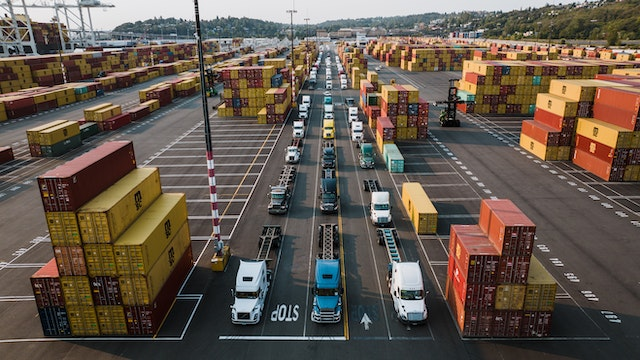In the modern world of global industrial networks, the transportation industry serves as the lifeline, ensuring the seamless movement of goods, people, and services. As this industry grows more interconnected and complex, the need for a steadfast standard for the transportation industry becomes increasingly evident. The dynamic nature of transportation, encompassing air, land, and sea, necessitates a harmonized framework that sets uniform benchmarks. The diverse operations, from logistics and maintenance to passenger services, demand a structured approach that leaves no room for ambiguity.
The aim isn’t solely to adhere to regulations but to drive a transformative change. A regulatory standard ensures that safety protocols are followed without compromise, enhancing public safety and minimizing risks inherent in this industry. Moreover, it streamlines processes, optimizing efficiency and reducing wastage ̶ an important cause in an era that emphasizes sustainability.
ISO 9001 Certification
ISO 9001 is a globally recognized standard that outlines the criteria for a Quality Management System (QMS). It helps ensure consistent quality, customer satisfaction, and continuous improvement in various industries, including transportation, by establishing systematic processes and procedures. Let’s explore why it is the best standard for the transportation industry.
ISO 9001 and QMS
Businesses seeking ISO 9001 certification begin by assessing their current processes and identifying areas for improvement. This introspection paves the way for creating a tailor-made QMS. QMS documentation outlines processes, responsibilities, and methodologies, acting as a guide for every facet of transportation operations.
From maintenance and safety protocols to customer service and supply chain management, every procedure is documented and streamlined within the QMS. This framework ensures that the industry adheres to consistent standards, leaving no room for ambiguity or deviation.
How A QMS Helps In The Transportation Industry
Implementing a QMS maps a way for the stakeholders, management, and employees to carry out smooth functions within their framework. Here’s how a QMS transforms the landscape of the transportation industry:
- Streamlines Operations:A QMS introduces structured processes, ensuring that each aspect of transportation, whether it’s scheduling, maintenance, or safety protocols, follows a standardized path. This consistency minimizes errors, enhances efficiency, and reduces delays.
- Enhances Safety:Safety is necessary in transportation, for example, to avoid road accidents and harming drivers or safely delivering a fragile product. A QMS establishes stringent safety measures, from vehicle maintenance to emergency response plans. By adhering to these standards, the industry ensures the well-being of passengers, crews, and goods.
- Improves Customer Satisfaction:A well-structured QMS places customer satisfaction at the core. By adhering to consistent quality and service standards, the transportation industry guarantees a reliable and comfortable experience for travelers and cargo recipients.
- Resource Management And Cost Saving:Efficient resource allocation is critical in transportation. A QMS optimizes resource utilization, be it fuel, manpower, or infrastructure, leading to cost savings and reduced environmental impact.
- Regulatory Compliance:The transportation industry is subject to a myriad of regulations. A QMS ensures that operations align with these regulations, minimizing legal risks and maintaining the industry’s reputation.
- Focusing On Improvement:A QMS encourages a culture of continuous improvement. By regularly evaluating processes, identifying areas for enhancement, and implementing changes, the transportation industry evolves, staying at the forefront of innovation.
Role Of ISO 9001 In Supply Chain Management
The relationship between supply chain management and transportation is integral. Supply chain management ensures the efficient movement of goods, while transportation facilitates this movement. Embracing the ISO 9001 standard for the transportation industry impacts supply chain operations significantly.
ISO 9001 brings structure to supply chain management by aligning it with the QMS framework. Each step, from material sourcing to product delivery, is documented to ensure consistent quality. This, in turn, influences supplier selection, enhancing supply chain resilience. ISO 9001’s focus on continuous improvement extends to the supply chain. Regular evaluations identify deviations, leading to timely corrective measures. This proactive approach minimizes disruptions and strengthens collaboration.
ISO 9001 And International Regulations
ISO 9001 transcends national borders as a globally acknowledged benchmark. Obtaining ISO 9001 certification not only reflects a commitment to quality but also opens doors to international exposure and recognition. With recognition spanning more than 195 countries, ISO 9001 certification holds a global status. This recognition eliminates barriers when engaging with partners, suppliers, and clients across the globe. It serves as a testament to a business’s dedication to quality management and adherence to consistent standards.
In an increasingly interconnected world, businesses armed with ISO 9001 gain a competitive edge. The certification signals to international markets that a company’s operations align with rigorous quality requirements. This trust translates into expanded opportunities, higher credibility, and a broader customer base.
Furthermore, ISO 9001 certification resonates with international regulations and standards. Businesses operating across borders find alignment with ISO 9001 enhances their ability to meet diverse regulatory expectations. The uniformity offered by ISO 9001 simplifies international transactions and collaborations. This standard for the transportation industry serves as a gateway to international markets, fostering trust, enabling growth, and solidifying a business’s place on the global stage.
ISO Certification For Transportation At BCS
ISO 9001 certification stands as a commitment to quality, safety, and efficiency. With a structured approach, businesses navigate global markets while ensuring passengers and cargo embark on a reliable journey. By adhering to this standard for the transportation industry, the sector not only meets international standards but also pioneers a future of excellence and dependability.
For impeccable ISO 9001 implementation in the transportation industry, trust our consulting services at BCS—an accomplished ISO consulting firm with experienced ISO standards for transportation certification consultants serving cities across America. Elevate your standards with BCS today. Call us now!




